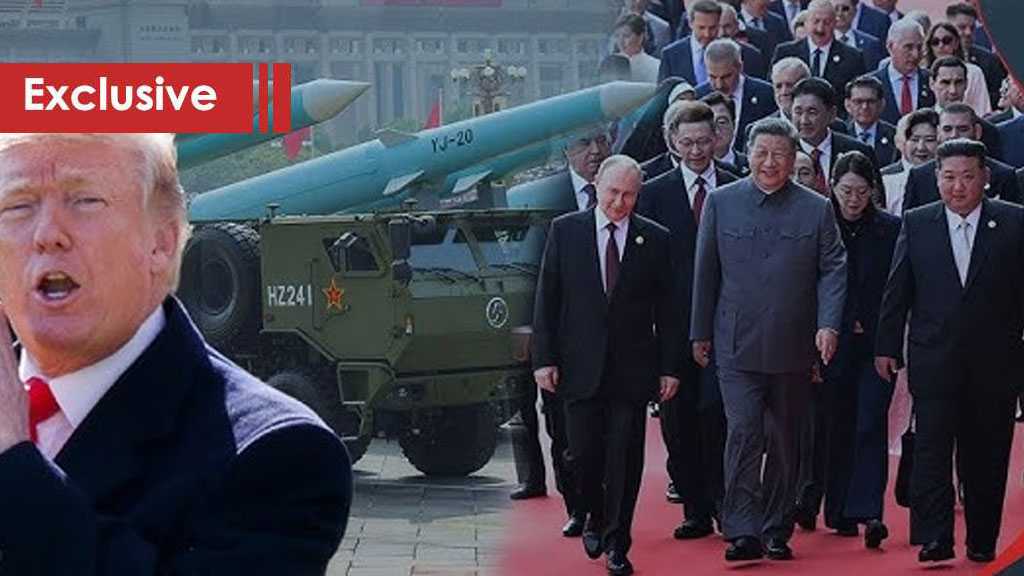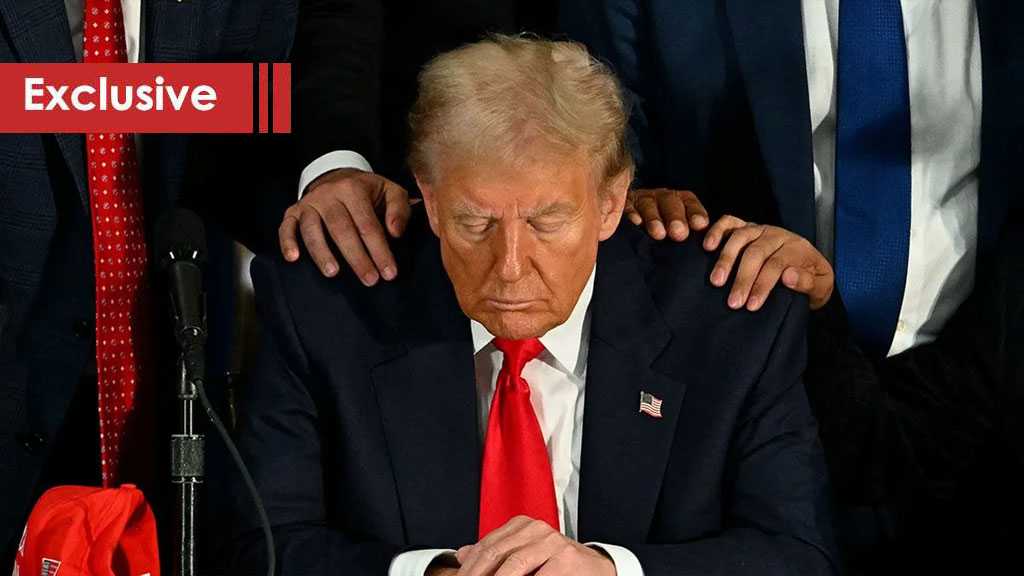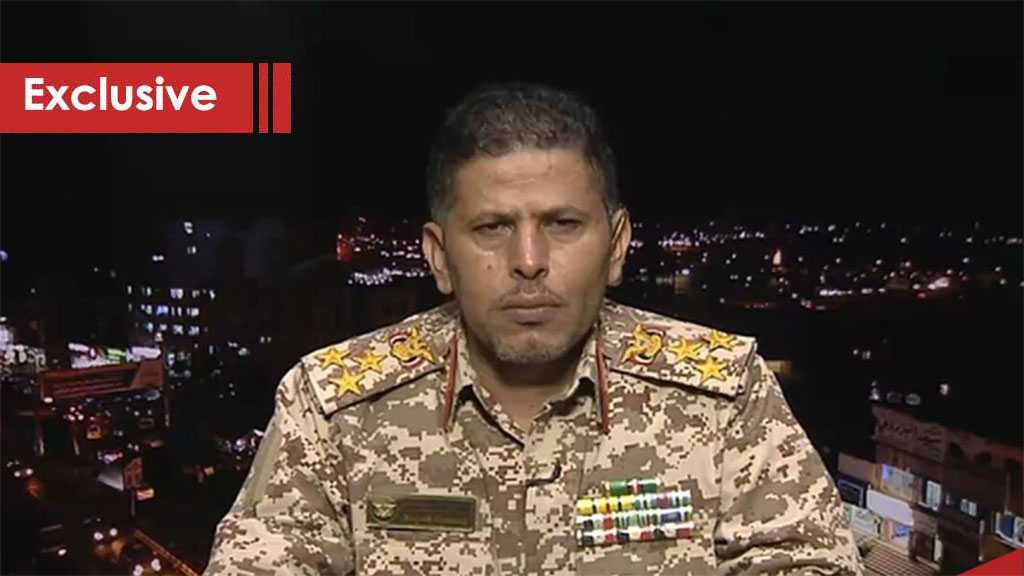
Trump Welcomed by Arab Leaders, Temporarily Halts Bibi’s Plans — What About Lebanon?

By Mohammad Al-Husseini
Lebanon – The region is witnessing a wave of events likely to reshape the political landscape of the Middle East. These changes were triggered by a series of bold and unprecedented moves by US President Donald Trump. From announcing direct talks with Iran on its nuclear program, to calling off the American war on Yemen, and initiating negotiations with Hamas to secure the release of the "Israeli"-American soldier Idan Alexander, Trump's recent actions have taken many by surprise. His “historic” trip to Saudi Arabia, the UAE and Qatar—with a possible side trip to Turkey—is part of an overall effort to end the Russian-Ukrainian war.
These actions, choreographed by Trump’s own team, surprised "Israeli" Prime Minister Benjamin Netanyahu and his government, particularly as they coincided with preparations for a full-scale invasion of Gaza aimed at defeating Hamas and refocusing on Iran’s nuclear facilities. But these plans now appear stalled, clashing with Trump's image as a global peacemaker seeking to close war fronts across the world. This growing divide places Trump and Netanyahu on opposing tracks, united only by their shared interest in maintaining "Israel" as a key element of American strategic priorities.
While past US-"Israel" disputes over Middle East policy were usually resolved to preserve "Israel’s" regional dominance, this time the gap runs deeper. Trump's outreach to "Israel’s" adversaries—Iran, the Ansarullah and Hamas—was conducted without coordination with "Tel Aviv," complicating Netanyahu’s political and military calculations. Trump’s rhetoric signals a laser focus on American interests, including pushing forward the “Abrahamic project,” which stands in contrast to "Israel’s" traditional worldview.
Trump has delivered several blows to Netanyahu: first, the surprise announcement of nuclear talks with Iran; then, signals of a pending US-Iran trade agreement and potential normalization; and even the dismissal of his national security adviser for secretly meeting with Netanyahu. Most notably, Trump may bypass "Israel" during his Middle East tour to avoid sabotaging deals with Arab states. These moves could pave the way for a US-backed Palestinian state in which "Israel" has little say, other than reluctantly accepting the outcome.
Trump’s peace drive is not confined to the Middle East. He aims to undo the legacy of past US presidents, as he did in his first term with the landmark trip to North Korea. Now he eyes China, through reciprocal tariff reductions and possible strategic agreements to ease East-West tensions. He also remains committed to brokering a ceasefire in the Russia-Ukraine war, regardless of the discomfort this may cause among European allies.
But can Trump truly succeed in his "promised peace"? What role will "Israel" play in this emerging world order? And how will all of this impact Lebanon? While Trump seems eager to close these files swiftly, analysts caution that expecting immediate results is premature given competing global agendas and the region’s complexity. Arab states are unlikely to obstruct Trump’s plans, but "Israel" and some European actors may have hidden motives. Gradual shifts may force Trump to adjust his strategy to preserve vital relationships.
Analysts also warn that a desperate Netanyahu might resort to disruptive tactics, as seen in the recent India-Pakistan crisis allegedly instigated by "Israeli" interference. Trump swiftly intervened to prevent the collapse of his India-Middle East-Europe Corridor plan and to avoid boosting China’s Belt and Road Initiative. Some analysts have called the incident a “dirty trick” by Netanyahu. More provocations may follow, as Netanyahu seeks to regain influence over Trump. While the US remains committed to "Israel" as a strategic ally, it appears less attached to its current leadership—a reality Netanyahu knows well, prompting him to act aggressively to avoid marginalization.
Regarding Lebanon, experts note that any major diplomatic shift led by Trump will undoubtedly affect the country, especially due to its ties with the Palestinian and Syrian fronts. US-Iran talks and Arab political-economic deals involving Tehran will likely influence Lebanese dynamics indirectly. Analysts urge Lebanese leaders to rise above sectarian divisions and focus on national priorities: halting "Israeli" aggression, rebuilding war-damaged infrastructure, and restoring public trust in government institutions.
So far, Lebanon’s leadership appears disconnected from pressing national issues. While President Joseph Aoun and Speaker Nabih Berri have expressed concern, Prime Minister Nawaf Salam is seen as focusing on secondary issues aligned with overt US expectations. Though symbolically important, these actions have not addressed the daily suffering of citizens amid a crumbling administrative system. Salam appears more concerned with securing a personal political legacy ahead of next year’s parliamentary elections than with resolving urgent national crises.
Comments



